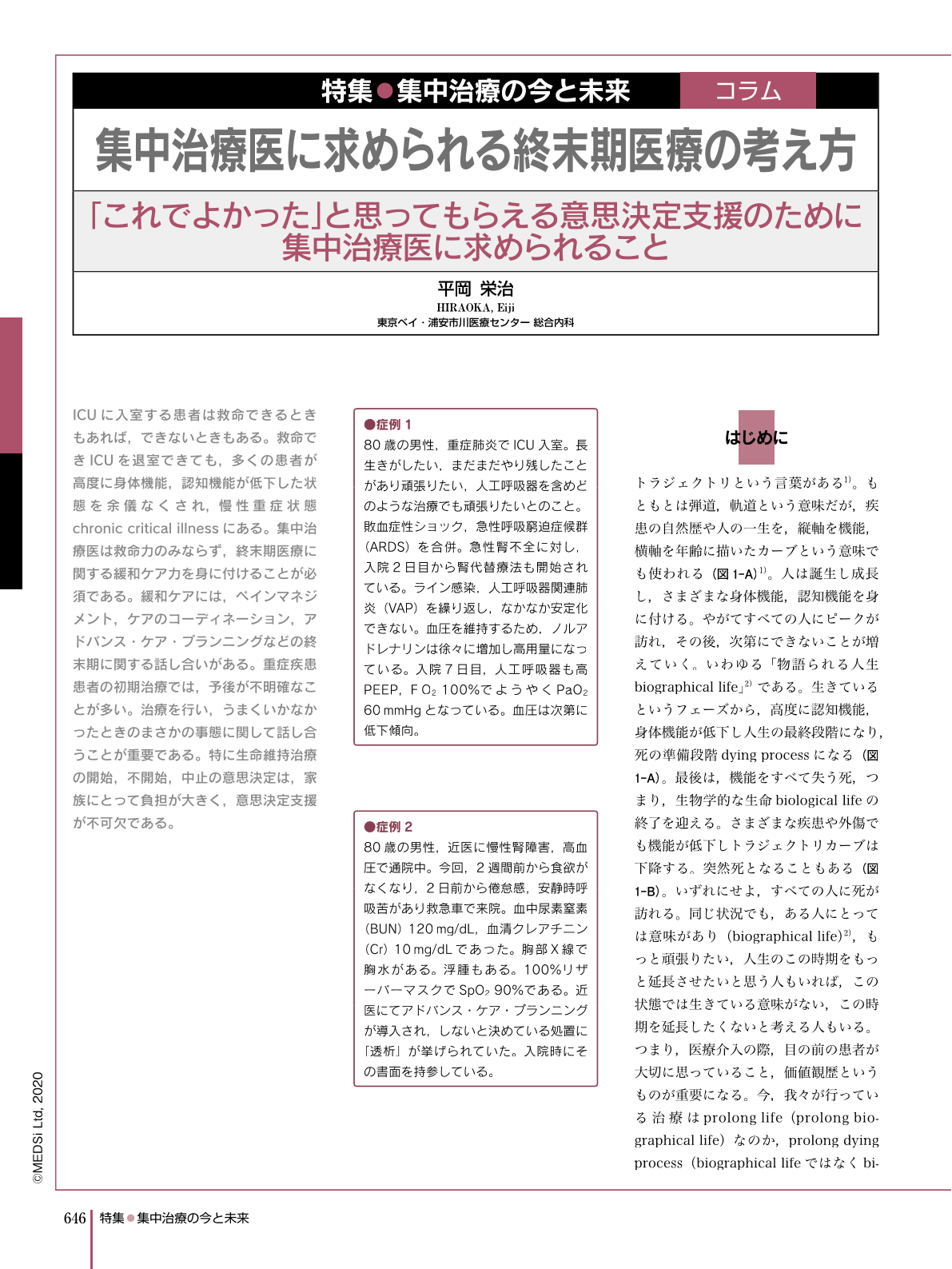Japanese
English
- 有料閲覧
- Abstract 文献概要
- 1ページ目 Look Inside
- 参考文献 Reference
- サイト内被引用 Cited by
ICUに入室する患者は救命できるときもあれば,できないときもある。救命できICUを退室できても,多くの患者が高度に身体機能,認知機能が低下した状態を余儀なくされ,慢性重症状態chronic critical illnessにある。集中治療医は救命力のみならず,終末期医療に関する緩和ケア力を身に付けることが必須である。緩和ケアには,ペインマネジメント,ケアのコーディネーション,アドバンス・ケア・プランニングなどの終末期に関する話し合いがある。重症疾患患者の初期治療では,予後が不明確なことが多い。治療を行い,うまくいかなかったときのまさかの事態に関して話し合うことが重要である。特に生命維持治療の開始,不開始,中止の意思決定は,家族にとって負担が大きく,意思決定支援が不可欠である。
Intensivists are required to have knowledge and skills to save and prolong the lives of patients in critical condition as well as those needing palliative care. A significant number of patients die in the intensive care unit (ICU). Even after discharge from the ICU, some suffer from chronic critical illnesses with poor quality of life (QOL). The poor QOL might not be acceptable for some patients and they might wish to discontinue life-prolonging treatment and focus on palliation. Palliative care requires a holistic approach, which includes pain management, coordination of care and end of life discussions. Intensivists frequently are not sure of the prognosis when encountering a patient in critical condition. In this situation, a time limited trial should be offered. Simultaneously, they need to discuss end of life issues, including advanced care planning, goals of care, unacceptable burden and suffering, and advance directives. Whether the patients' life can be saved or cannot be saved, palliative care and support with difficult decision-making is crucial.

Copyright © 2020, MEDICAL SCIENCES INTERNATIONAL, LTD. All rights reserved.


